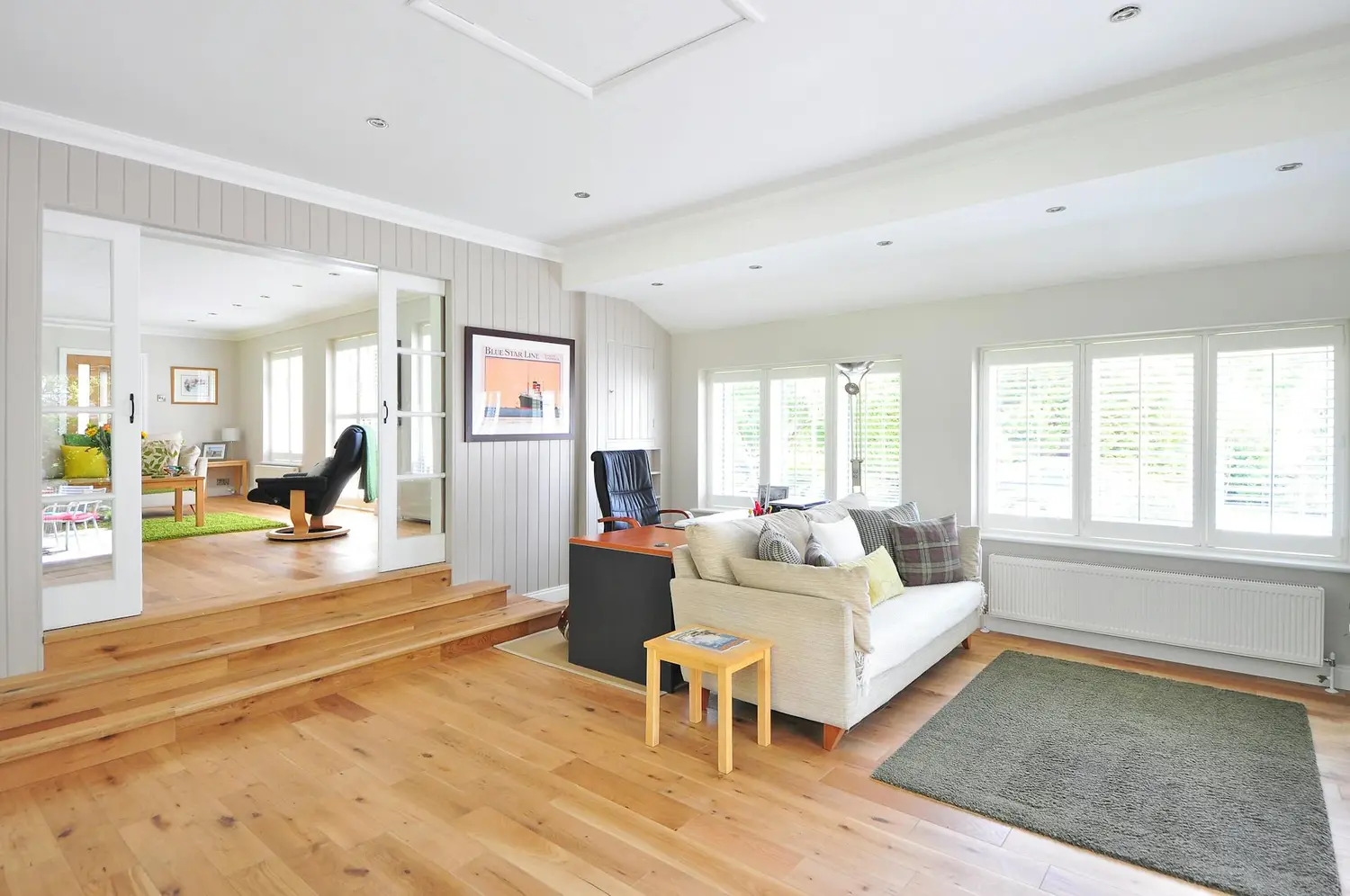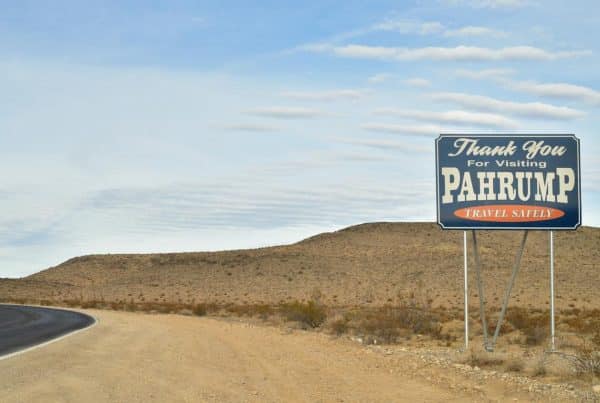If you plan on buying property in Las Vegas, the good news is there are plenty of opportunities, ranging from high-rise condos to spacious single-family homes.
To help you make an informed purchase, we’ve compiled this list of 10 things you need to know before buying property in Las Vegas.
10 things to know before buying property in Las Vegas
This list is based on top considerations of Las Vegas homebuyers.
1. Nevada’s taxes favor homeowners, but there’s a catch
First, let’s talk about the good, as Nevada’s tax advantages are not to be dismissed lightly. In fact, the state’s tax structure is one of the most favorable in the nation for homeowners.
We estimate that homeowners in Nevada benefit from an average of $5,000 to $7,000 in annual tax savings compared to homeowners in high-tax states.
These savings can be used to:
- Invest in home improvements to boost property value
- Pay down your mortgage faster to save on interest
- Invest in additional properties for rental income
The Trade-offs of Nevada’s Low Taxes
While Nevada’s tax policies are favorable, they do come with some downsides. For instance, Las Vegas’s public transportation system is underfunded and notoriously bad.
This is because Las Vegas’s public transit system is mainly funded by local sales taxes and federal grants. Contrast this, for instance, with Texas, where the state provides direct funding to transit districts in combination with federal grants and local sources.
If you plan on buying property in Las Vegas and need reliable public transportation, you may run into challenges.
2. Las Vegas summers may substantially increase your home’s energy bill
Las Vegas summers are hot! So, if you’ve never been to the city in the summer, we highly recommend visiting before you invest in property…if you plan on living here.
In addition to making you sweat, Nevada’s summers can easily drive your cooling bill up to $400+ a month if you have a large house.
Fortunately, there are ways to mitigate the energy bill issue, including:
- Installing blackout or cellular shades to block heat and sunlight
- Upgrading to a high-efficiency HVAC system
- Using smart thermostats to optimize cooling schedules
- Adding extra attic insulation to keep heat out
- Setting ceiling fans to rotate counterclockwise in the summer
The silver lining is that Nevada has a dry heat, so you won’t experience the scorching humidity you get in places like Texas and Florida.
3. Water conservation policies in Las Vegas may limit landscaping choices
If you want a traditional grassy lawn in Las Vegas, you may find it challenging for a couple of reasons. One, the hot and arid climate makes maintaining grass difficult. Two, most homes face watering restrictions.
Instead of traditional lawns, the Southern Nevada Water Authority encourages drought-tolerant plants and xeriscaping. It’s a different look, but with some creative planning, xeriscaping can make a beautiful yard.
4. Las Vegas neighborhoods vary widely in condition
Las Vegas has diverse neighborhoods, and like all cities, there are areas that are better suited for families than others. An experienced Las Vegas real estate agent can help you find the best locations in the city.
Where To Avoid and Where To Buy
Generally, if you have a family and are looking to buy property in Las Vegas, you want to stick to suburban areas like Summerlin, North Las Vegas, and Henderson and avoid properties near the Strip. By contrast, professionals with no kids may find condos and apartments on the Strip appealing.
For luxury homes, we suggest getting away from the Strip and exploring Red Rock Country Club and The Trails Village in Summerlin.
Meanwhile, North Las Vegas is a good place to look for mid-priced single-family homes.
5. Many Las Vegas communities have mandatory HOA memberships
Before buying property in Las Vegas, definitely check its HOA fee, which may range from $15 to $600+ per month. Expect your house to have an HOA; they are very common in Las Vegas.
In fact, the number of homes for sale that don’t have an HOA is quite low. We estimate less than a thousand at present.
As you might know, having an HOA means paying monthly or annual fees for community maintenance and amenities. This can make it challenging for homebuyers who are hitting their purchasing limit.
A real estate agent can help you find properties with lower HOA fees or even non-HOA neighborhoods if that’s a concern.
6. Crime rates vary significantly by neighborhood in the Las Vegas Metropolitan Area
Las Vegas is an amazing city, but like any major metropolitan area, it does have its problems, including areas with higher crime rates.
The good news is that neighborhoods like Paradise Hills, Sun City Summerlin, and Anthem in Henderson are quite safe. In fact, their crime rates are below the Nevada average.
Moreover, these aren’t the only safe areas in greater Las Vegas. McCullough Hills, Centennial Hills, and Green Valley Ranch are also wonderful, family-friendly communities. The problem is that safety in Las Vegas can change block by block, and of course, law enforcement and court policies have a part to play.
That’s why we always recommend using up-to-date crime mapping tools when you’re house hunting.
7. Las Vegas’s 2050 Master Plan is reshaping certain residential areas
If you’ve never read Las Vegas’s 2050 Master Plan, it’s well worth it. It’s a large, comprehensive document that offers a fascinating look at the city’s long-term development plans, which include walkable neighborhoods, mixed-use developments, public transit, and more.
Homebuyers and property investors can expect the 2050 Master Plan to bring more developments like the UnCommons project, a community in southwest Las Vegas that combines office space, residential units, and amenities to create live/work/play neighborhoods.
Case in point, according to the 2050 Master Plan, “[The people of Las Vegas] see opportunities to make more communities walkable and responsive through mixed use developments together with ample parks, open spaces and recreational opportunities.”
8. Proximity to Las Vegas’s attractions impacts property prices
In Las Vegas, the old real estate mantra, “The best time to buy real estate was 20 years ago,” takes on a whole new meaning. Over the past 20 years, property values in the city have not just increased but tripled (or more) in price.
Properties close to the Las Vegas Strip, which have been pricey for decades, now often come with atmospheric price tags. However, there are areas away from Las Vegas’s main attractions, such as North Las Vegas, where property prices are much more reasonable.
9. School zoning can impact your property value
Homes in highly-rated school districts often command higher prices and maintain their value better. This is primarily due to buyer demand for quality education.
According to the National Association of REALTORS® (NAR) 2019 Moving with Kids Report, 53% of buyers with children under 18 considered the quality of school, while 50% of buyers with children said convenience to schools was an important factor.
In greater Las Vegas, the top-rated schools are concentrated in Summerlin, Green Valley, and Henderson.
10. Las Vegas’s real estate market moves dynamically
Homes in Las Vegas tend to sell reasonably fast, although there is plenty of variation.
As of May 2024, the average sale time for a home in Las Vegas was 28 days, whereas in May 2023, homes spent an average of 46 days on the market.*
Several factors drive changes in sale times, including:
- Seasonal trends
- Economic conditions
- Interest rates
- Housing inventory levels
- Buyer demand
Estimates vary per source.*
Buying property in Las Vegas with The Real Estate Guy
Ready to buy your perfect home in Las Vegas? Contact The Real Estate Guy for expert guidance. We will help you find the property that best fits your needs and lifestyle.






